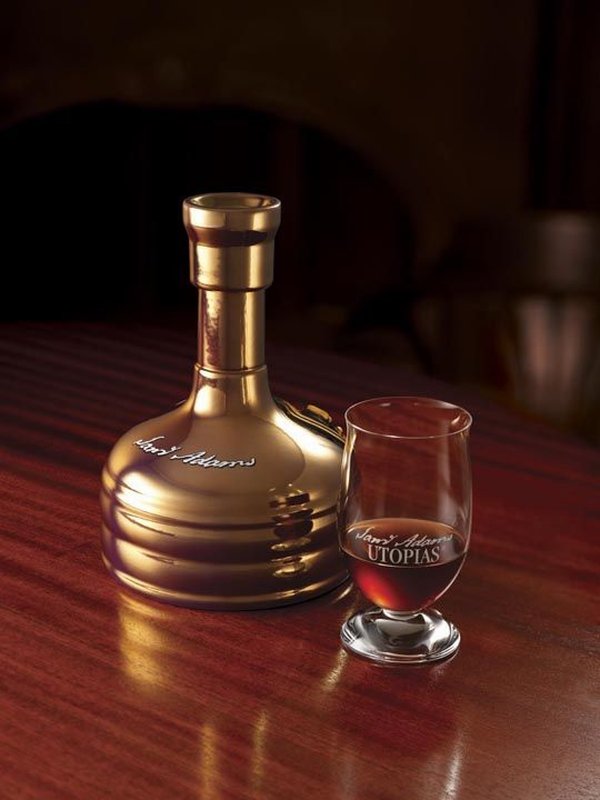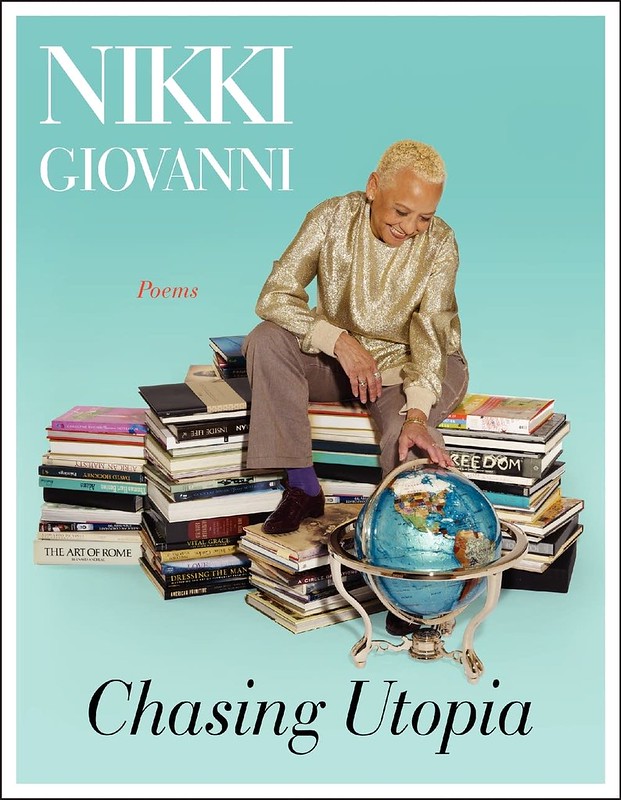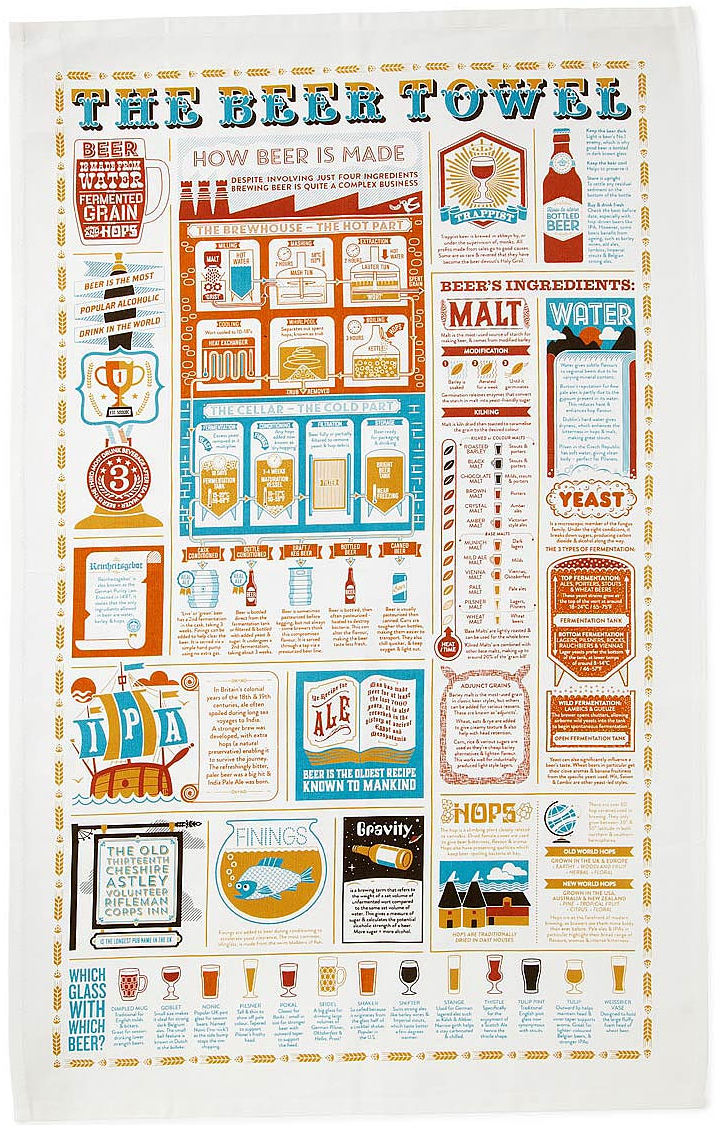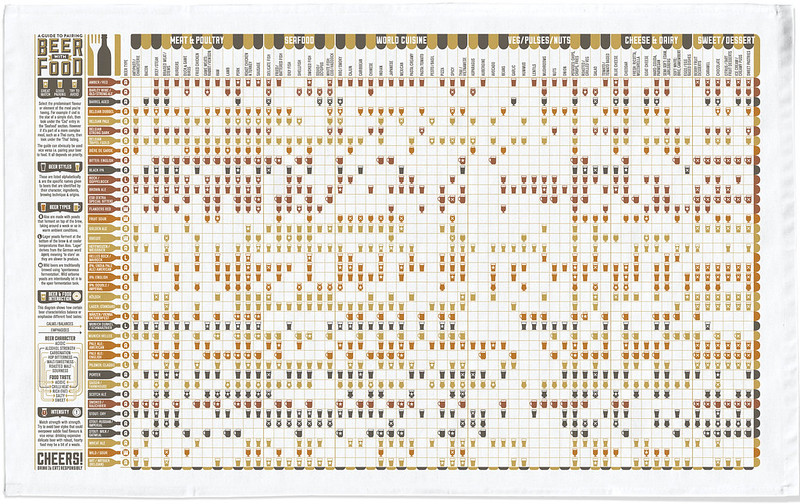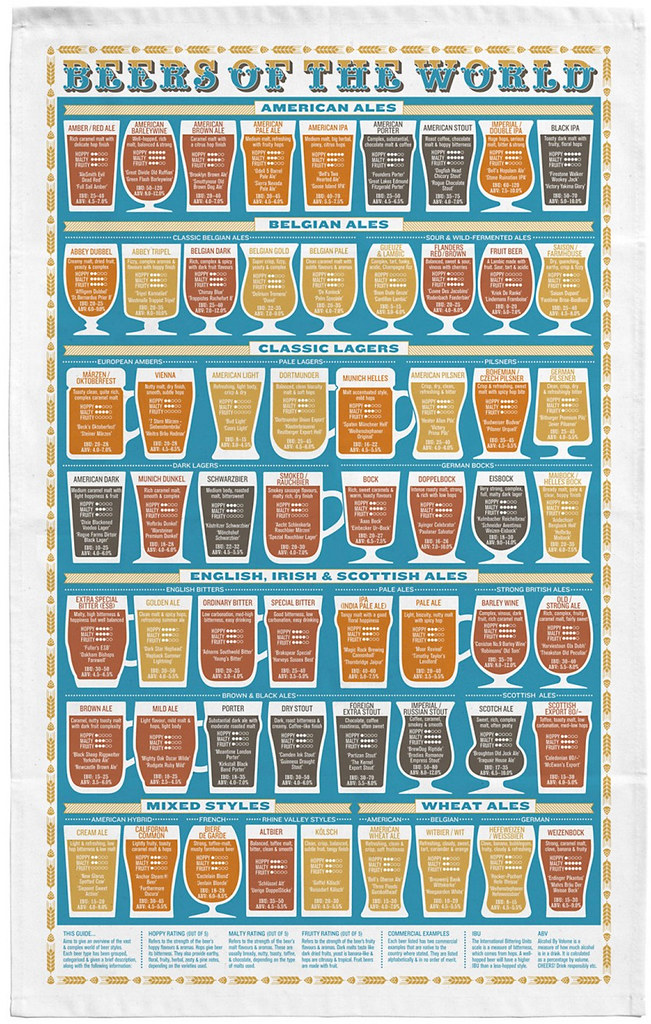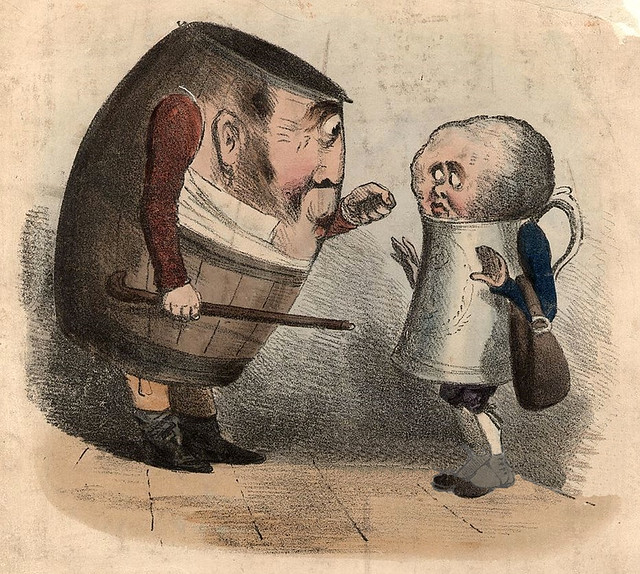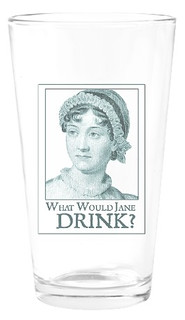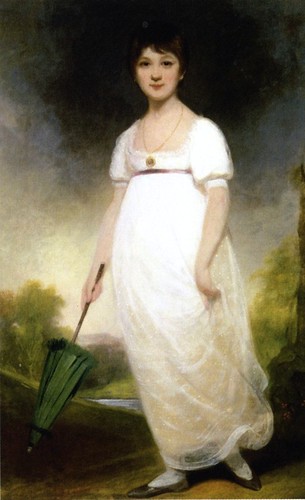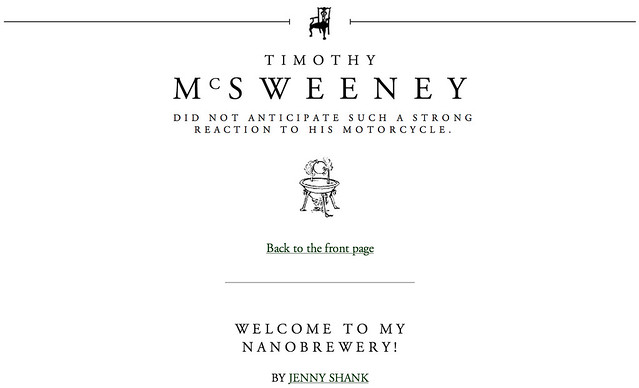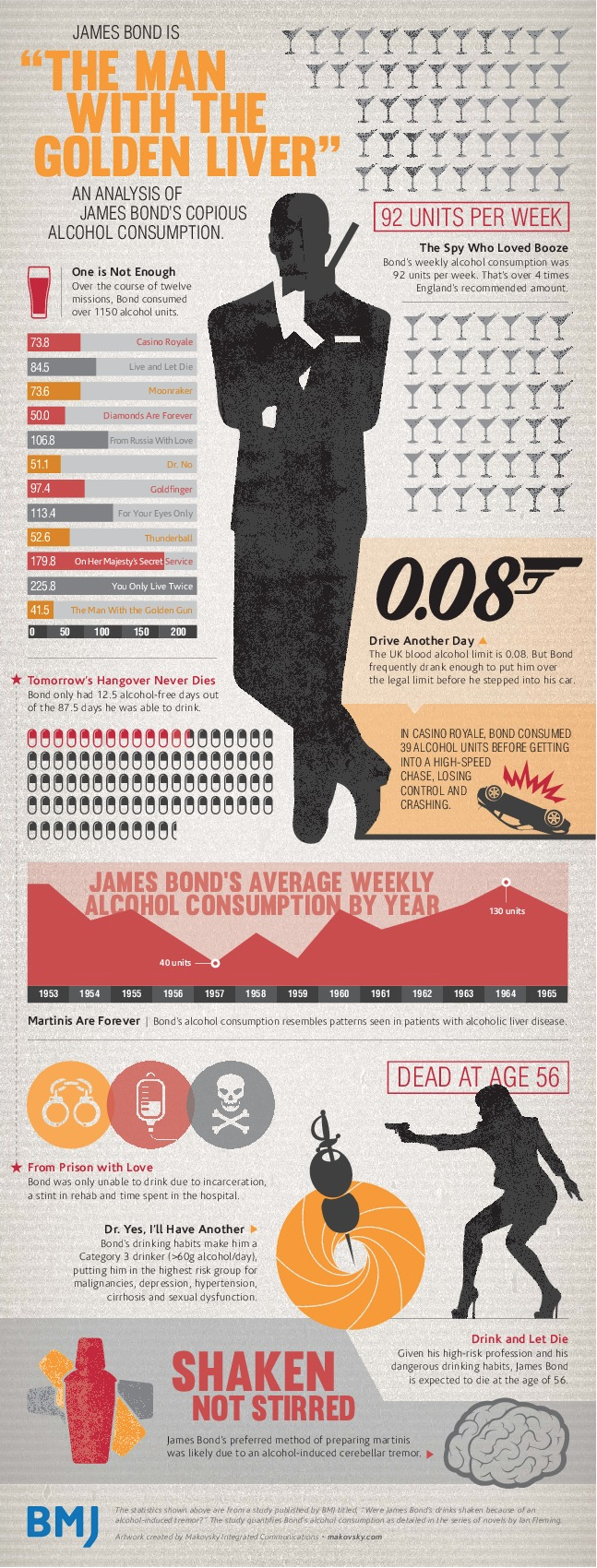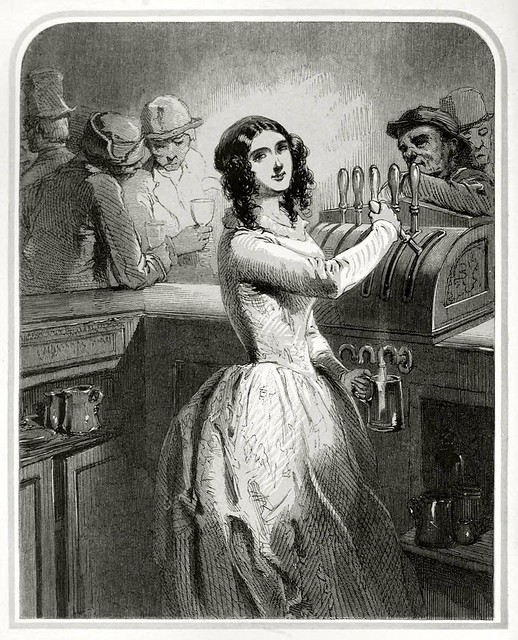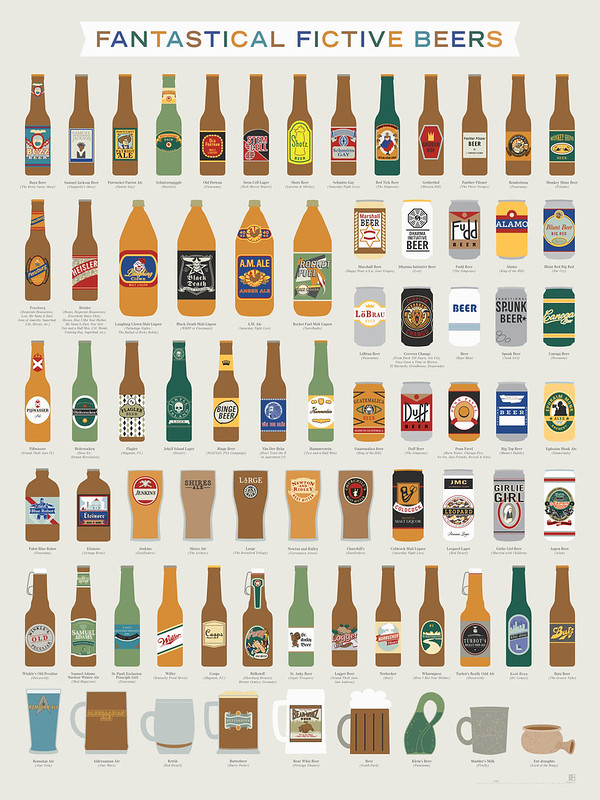![]()
Between 1951 and 1953, P. Ballantine and Sons Brewing Company, or simply Ballentine Beer, created a series of ads with at least thirteen different writers. They asked each one “How would you put a glass of Ballantine Ale into words?” Each author wrote a page that included reference to their beer, and in most cases not subtly. One of them was Erle Stanley Gardner, whose most well-known character was Perry Mason.
Today is the birthday of Erle Stanley Gardner (July 17, 1889–March 11, 1970). He “was an American lawyer and author. Though best known for the Perry Mason series of detective stories, he wrote numerous other novels and shorter pieces, as well as a series of non-fiction books, mostly narrations of his travels through Baja California and other regions in Mexico.” His Ballantine ad ran in 1952.
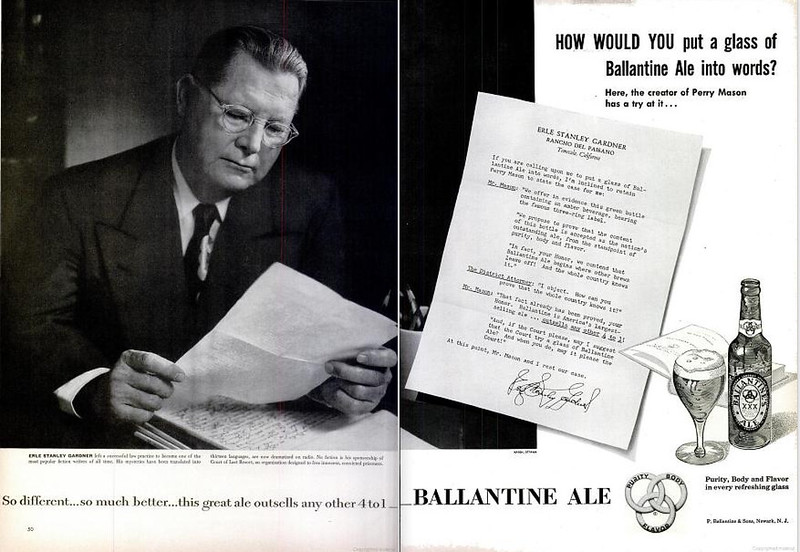
His piece for Ballantine was done in the form of a Perry Mason script, written on his personal stationary from his home in Temecula, California:
If you are calling upon me to put a glass of Ballantine Ale into words, I’m inclined to retain Perry Mason to state the case for me:
Mr. Mason:- “We offer in evidence this green bottle containing an amber beverage, bearing the famous three-ring label.
“We propose to prove that the content of this bottle is accepted as the nation’s outstanding ale, from the standpoint of purity, body and flavor.
“In fact, your Honor, we contend that Ballantine Ale begins where other brews leave off! And the whole country knows it.”
- The District Attorney:
- “I object. How can you prove that the whole country knows it?”
- Mr. Mason:
- “That fact already has been proved, your Honor. Ballantine Ale is America’s largest-selling ale … outsells any other 4 to 1!
“And, if the Court please, may I suggest that the Court try a glass of Ballantine Ale? And when you do, may it please the Court!”
At this point, Mr. Mason and I rest our case.
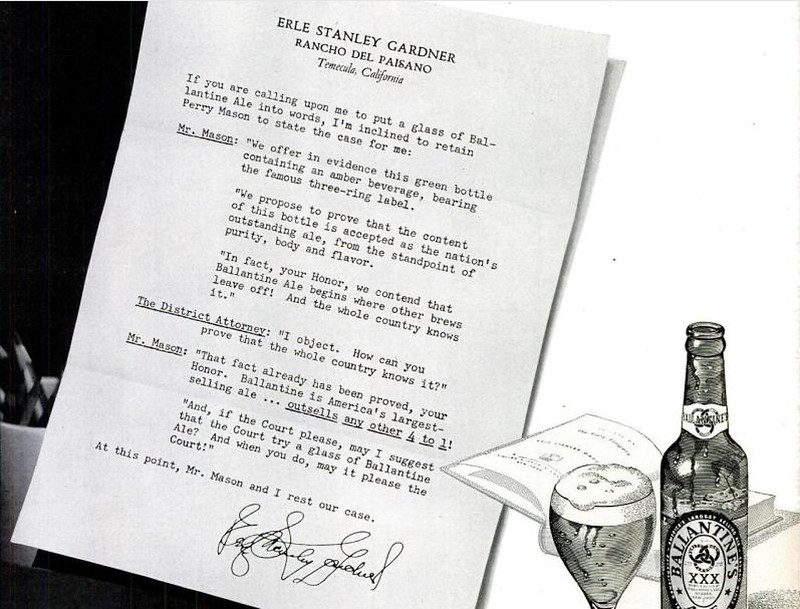
This one is definitely one of the cheesier ones in the series. I’ll feature the rest on their respective authors’ birthdays throughout the year.


